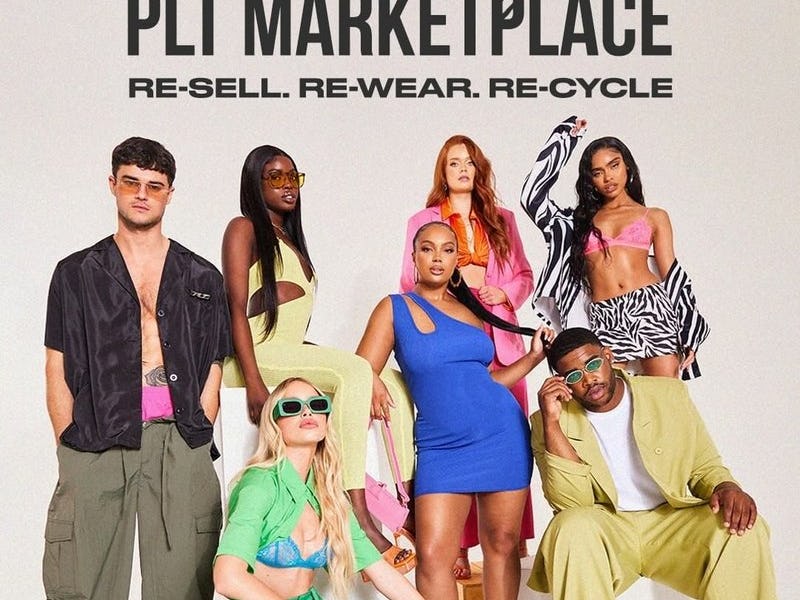Style
PrettyLittleThing launches fast fashion resale marketplace
But can its pieces even last long enough to be resold and reused?

The fast fashion fire is far from put out. In an attempt at circularity, retailer PrettyLittleThing is launching a resale app that aims to encourage sustainability and help rethink throw-away fashion. As one of the first fast fashion resale marketplaces, however, the launch raises concern over where the industry is headed.
Users will be able to resell their used PLT pieces “and pretty much anything pre-loved,” according to the brand’s creative director Molly-Mae Hague. There’s even a zero-fee promotion for your first three months on the site.
Hague told FashionUnited that the new platform aims to disrupt the fashion industry by extending the lifespan of its garments (as well as pieces from “the biggest and best brands”) and to increase diversity and inclusivity. Hague will be one of the first sellers in the marketplace, admitting she has “hundreds of PLT pieces” that she doesn’t wear that can be reused by someone else. But will the pieces really find new life, or is this just fast fashion running out of places to dump its waste?
Greenwashing galore — San Vintage, an online vintage shop and verified Depop seller, was quick to call out the brand’s initiative as greenwashing on its Instagram announcement post. Greenwashing refers to the process of distracting customers with sustainable claims while still producing cheap and environmentally harmful clothing. Many of PLT’s pieces are made with synthetic, unnatural, unrecyclable fibers.
Fast fashion garments are notorious for being low quality and being made with unethical labor, falling apart after a few wears and washes. While a resale app may skip a step and prevent a piece from entering a landfill too soon, it doesn’t change the overall quality and longevity of the piece. Fast fashion literally isn’t built to last.
Thrift stores and online resale platforms are becoming littered with Shein and other fast fashion brands, often with the tags still intact or disclaimers that the pieces were “worn once for content.” Still, one study from SaveOnEnergy, a British-based energy comparison company, found that PrettyLittleThing is one of the most resold brands in the world. Despite sustainability awareness efforts, buyers are aware that certain companies are unsustainable — and are still consuming them more than ever.
Trendy resale value — Evidently, there’s a market for cheap, trendy pieces — especially if they’re under the guise of greenwashed “sustainability.” Livia Firth, co-founder of sustainable consulting company Eco-Age, told The Frontlash that a piece is truly sustainable if it can be worn more than 30 times — a stretch for a nylon cut-out top from PLT. Fast fashion is meant to adhere to trend cycles, and the app will likely just serve as a dumping ground for unwanted clothes.
The marketplace will launch in two phases. Phase one will allow existing account users to sync to the platform, list their pieces from PLT and other brands, manage wish lists, and verify users and their PayPal accounts. Phase two will include a review feature, a subscription service, and a PLT store credit payment option. Although the app is debuting in the U.K., a U.S. launch will follow by the end of the year. Fast fashion is only getting faster, and the bubble has yet to pop.